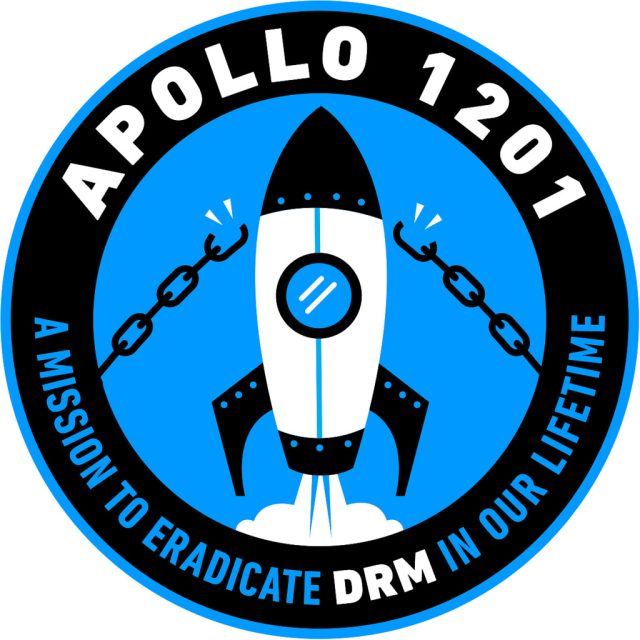
The Electronic Frontier Foundation announced Tuesday that Boing Boing's Cory Doctorow has been commissioned to tackle digital rights management technologies (DRM) that the rights group says threatens security, privacy, and undermines public rights and innovation.

Doctorow, the EFF's former European affairs coordinator and current Boing Boing editor, said in a statement:
Apollo was a decade-long plan to do something widely viewed as impossible: go to the moon. Lots of folks think it's impossible to get rid of DRM. But it needs to be done. Unless we can be sure that our computers do what we tell them, and don't have sneaky programs designed to take orders from some distant corporation, we can never trust them. It's the difference between 'Yes, master' and 'I CAN'T LET YOU DO THAT DAVE.'
The EFF explains the many ways DRM serves as an annoyance, if not an outright hindrance to your ability to enjoy the content you've lawfully purchased:
- Bought an ebook from Amazon but can't read it on your ebook reader of choice? That's DRM.
- Bought a video game but can't play it today because the manufacturer's "authentication servers" are offline? That's DRM.
- Bought a smartphone but can't use the applications or the service provider you want on it? That's DRM.
- Bought a DVD or Blu-Ray but can't copy the video onto your portable media player? That's DRM.
Most recently, Keurig has added DRM to its pod coffee makers.
"Corporations claim that DRM is necessary to fight copyright infringement online and keep consumers safe from viruses. But there's no evidence that DRM helps fight either of those. Instead DRM helps big business stifle innovation and competition by making it easy to quash 'unauthorized' uses of media and technology," the EFF said.
A main EFF concern is Section 1201 of the Digital Millennium Copyright Act (DMCA) which outlaws the circumvention of copy controls.
"That ban was meant to deter illegal copying of software, but many companies have misused the law to chill competition, free speech, and fair use. Software is in all kinds of devices, from cars to coffee-makers to alarm clocks. If that software is locked down by DRM, tinkering, repairing, and re-using those devices can lead to legal risk," the EFF said.
reader comments
184